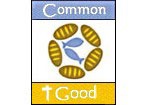Abortion, pornography, offensive material in the media and even in schools… The list of cultural problems that threaten the family goes on and on, and people who are pro-family can generally agree on their opposition to these things. But economic forces can also damage the family, so the family needs to be protected from these as well. Thomas Storck writes that the government has a necessary and rightful role in protecting the family from the possible threats of impersonal economic forces.
Generally, people who are pro-life also claim to be pro-family, and this is natural and good, since the forces of secular humanism view the family as one of their major targets. Although abortion is certainly a grave injustice against the individual unborn baby, it is also an attack on the family. Abortion destroys the unity of a pregnant daughter and her parents, a pregnant wife and her husband, and most definitely of a mother and her unborn child. So being both pro-life and pro-family is naturally connected. But anyone who is pro-family today must also recognize the other baneful influences on the family: pornography, the government school system with its promotion of secularism, most of the mass media, in fact, a good deal of the ordinary culture we live in. I'm sure that most pro-family people would agree with what I just said. But is there more to being pro-family than things like this?
I think that there is. Being pro-family also means supporting the social teachings of the Catholic church, teachings that approach social and economic questions from the standpoint of personal and family dignity. For example, Pope Pius XI, in his justly celebrated encyclical against birth control of 1930, Casti Connubii, also talks about other attacks on the dignity of marriage and the family. After discussing various measures that private groups must take to insure that families can live in dignity, the Pontiff states,
“If, however, for this purpose, private resources do not suffice, it is the duty of the public authority to supply for the insufficient forces of individual effort, particularly in a matter which is of such importance to the common weal. … If families, particularly those in which there are many children, have not suitable dwellings; if the husband cannot find employment and means of livelihood; if the necessities of life cannot be purchased except at exorbitant prices; if even the mother of the family to the great harm of the home, is compelled to go forth and seek a living by her own labor; if she, too, in the ordinary or even extraordinary labors of childbirth, is deprived of proper food, medicine, and the assistance of a skilled physician, it is patent to all to what an extent married people may lose heart, and how home life and the observance of God's commands are rendered difficult for them. … Hence, in making the laws and in disposing of public funds they must do their utmost to relieve the needs of the poor, considering such a task as one of the most important of their administrative duties.”
In other words, it is not possible to be really pro-family and simply leave other families to the mercy of the economy and of private charity. Although excessive interference by the government is certainly a great evil, the best way to fight it is to champion the proper role of the state, neither minimizing nor maximizing that role. For both a state that transgresses its proper bounds and the callous and impersonal forces of the economy are enemies of the family, and both must be opposed by those who are truly pro-family.
As Catholics, we have in the church's social teaching an approach to these social and economic problems that has deep roots in Catholic tradition and avoids both the excesses of state power and the equally evil notion of reducing the role of the state so that its God-given duty of protecting and promoting the common good is forgotten. All Catholics who are interested in political and economic questions should immerse themselves in this teaching. If we fail to do this, then our thinking will be colored by one or the other of our current isms, and whether it is a liberal ism or a conservative ism, it will not be Catholic.
So a true pro-family attitude seeks to protect the family from all the forces arrayed against it—from secularists, the homosexual movement, New Age practitioners—but from the economic forces that can destroy a family as well. Then we will be truly putting the family first, above all the false gods that our secular world worships and serves.
Copyright © 2000 Thomas Storck
Thomas Storck, a convert to the Catholic faith from the Episcopal Church, is the author of The Catholic Milieu (1987), Foundations of a Catholic Political Order (1998) and the newly released Christendom and the West (2000), as well as numerous articles and reviews on the subjects of Catholic culture and social teaching. He is a contributing editor of New Oxford Review and a member of the editorial board of The Chesterton Review and has taught history at Christendom College and philosophy at Mount Aloysius College and Catonsville Community College. For more information about his writing, or to order one of his books, please visit www.fourfacespress.com.


